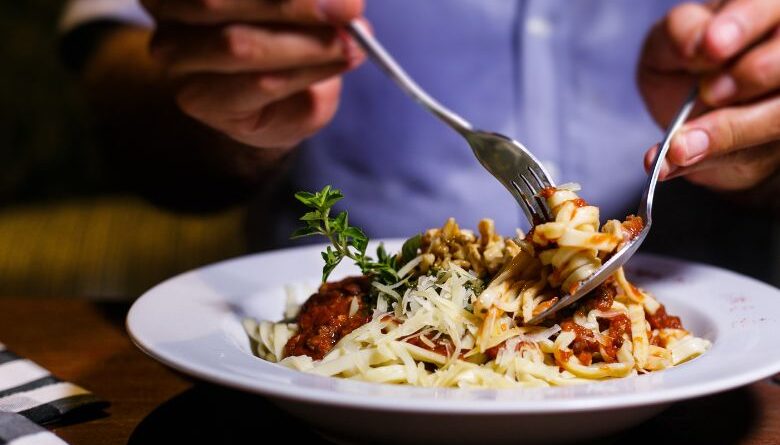Understanding Emotional Eating and Developing Healthy Habits
Understanding Emotional Eating and Developing Healthy Habits
In today’s fast-paced world, many individuals find themselves turning to food as a source of comfort or relief during times of stress, sadness, or anxiety. This emotional connection to food is known as emotional eating. Understanding emotional eating and its impact on our well-being is crucial for developing healthy habits and maintaining overall emotional wellness.
What is Emotional Eating?
Emotional eating refers to the act of eating in response to emotions rather than true hunger. It involves using food as a coping mechanism to deal with negative feelings or to enhance positive ones. Emotional eaters often find themselves reaching for specific types of food, usually high in sugar or unhealthy fats, as they believe it will provide them with temporary relief from their emotional distress.
The Link Between Emotions and Eating Habits
The relationship between emotions and eating habits is complex. Our emotions can significantly influence our food choices and eating behaviors. For example, during periods of stress, some individuals may turn to comfort foods as a way to find solace, leading to a temporary feeling of relief. However, this emotional eating can create a cycle of guilt and shame, leading to more emotional eating and potential health issues.
Identifying Emotional Eating Triggers
Recognizing emotional eating triggers is vital in breaking the pattern of using food as an emotional crutch. Common emotional eating triggers include stress, anxiety, loneliness, boredom, and even happiness or celebrations. By identifying these triggers, individuals can take proactive steps to manage their emotions in healthier ways.
Negative Effects of Emotional Eating
Emotional eating may provide temporary comfort, but it can have several negative effects on both physical and emotional well-being. Weight gain, guilt, and a sense of loss of control over eating habits are some of the common consequences of emotional eating. Additionally, it can perpetuate emotional distress, leading to a vicious cycle that is hard to break.
Developing Healthy Habits to Cope with Emotions
Overcoming emotional eating requires cultivating healthier coping mechanisms. Here are some strategies to develop and maintain healthy habits:
6.1 Mindful Eating
Practicing mindful eating involves being present and fully engaged during meals. By paying attention to the taste, texture, and aroma of food, individuals can cultivate a more conscious relationship with what they eat, leading to a better understanding of hunger and fullness cues.
6.2 Regular Exercise
Physical activity is not only beneficial for physical health but also plays a significant role in managing emotions. Engaging in regular exercise can release endorphins, which act as natural mood lifters and stress reducers.
6.3 Stress Management Techniques
Learning and implementing stress management techniques like deep breathing, meditation, or yoga can help individuals deal with emotions in healthier ways instead of turning to food.
6.4 Seeking Support and Professional Help
Opening up about emotional eating struggles to friends, and family, or seeking support from therapists or support groups can provide valuable insights and encouragement throughout the journey of overcoming emotional eating.
Building a Supportive Environment
Creating a supportive environment is essential for sustaining healthy habits. Surrounding oneself with individuals who encourage positive behaviors and understand the challenges of emotional eating can foster a sense of belonging and accountability.
Creating a Personalized Healthy Eating Plan
Developing a personalized healthy eating plan with the guidance of a nutritionist or dietitian can ensure that individuals nourish their bodies with the right foods and avoid using food as an emotional crutch.
The Role of Self-Compassion in Overcoming Emotional Eating
Practicing self-compassion involves treating oneself with kindness and understanding during challenging times. Instead of being self-critical after emotional eating episodes, individuals should practice self-forgiveness and focus on making healthier choices moving forward.
Setting Realistic Goals and Celebrating Progress
Setting achievable goals and recognizing progress, no matter how small, is crucial for staying motivated and committed to the journey of overcoming emotional eating.
Maintaining Long-Term Emotional Well-Being and Healthy Habits
Maintaining emotional well-being and healthy habits is an ongoing process. It requires consistency, patience, and a willingness to adapt as circumstances change. Remember that progress, not perfection, is the ultimate goal.
Conclusion
Understanding emotional eating is the first step toward developing healthier habits and improving overall well-being. By identifying emotional eating triggers, cultivating positive coping mechanisms, and surrounding oneself with support, individuals can break free from the cycle of emotional eating and embrace a healthier and happier lifestyle.
FAQs
- Is emotional eating a form of binge eating disorder? No, emotional eating and binge eating disorder are different. While emotional eating involves using food to cope with emotions occasionally, binge eating disorder is a more serious condition characterized by frequent episodes of consuming large quantities of food uncontrollably.
- Can emotional eating lead to weight gain? Yes, emotional eating can contribute to weight gain over time, especially if it becomes a habitual coping mechanism. The types of food often consumed during emotional eating episodes are typically high in calories and low in nutritional value.
- Is emotional eating solely caused by negative emotions? No, emotional eating can be triggered by both negative and positive emotions. Some individuals may also use food to celebrate or reward themselves, which can become problematic if it becomes a common response to emotions.
- How can I differentiate between emotional hunger and physical hunger? Emotional hunger tends to be sudden and specific to certain comfort foods, while physical hunger develops gradually and is open to various food choices. Physical hunger is also often accompanied by physical cues like a growling stomach.
- Is it okay to indulge in comfort foods occasionally? Yes, indulging in comfort foods occasionally is normal and can be a part of a balanced lifestyle. The key is moderation and recognizing when emotional eating becomes a coping mechanism rather than an occasional treat.
- Incorporating Mindfulness into Daily Routines





Pingback: Cultivating Gratitude: Embracing the Positive in Life | UTHSI 2023